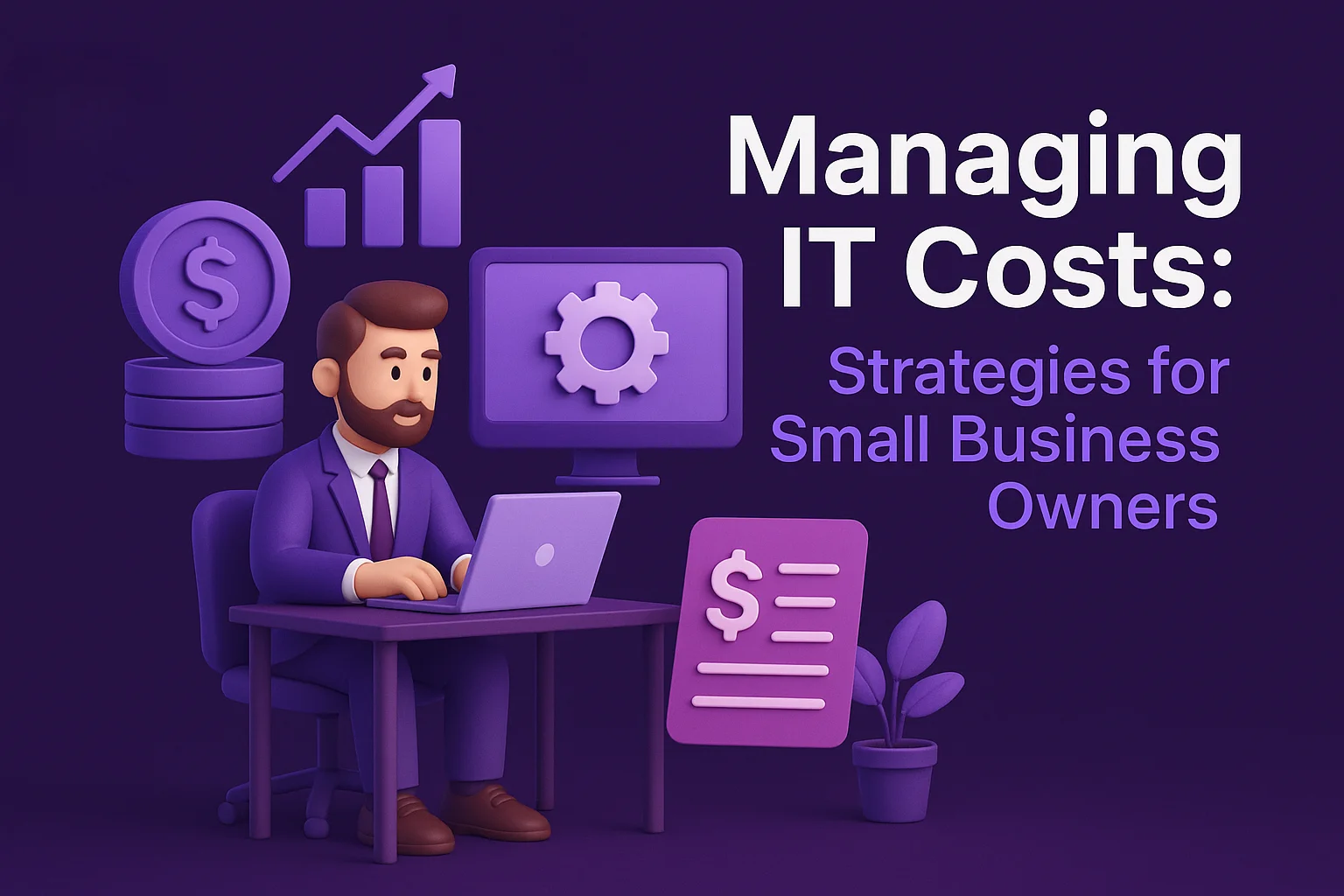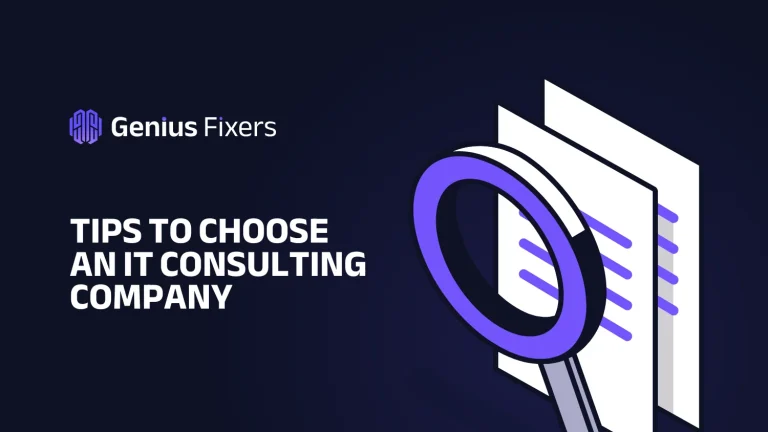Empowering Businesses with IT Solutions

Managing IT Costs: Strategies for Small Business Owners
Welcome to Genius Fixers Blog!
Managing the costs of IT can be difficult, especially for small business owners who have limited budgets and resources. The positive news is that with the proper strategies and proactive planning, it can significantly reduce expenses while maintaining a strong, secure IT environment. Below, we have listed some of the key strategies we believe will help you to effectively spend and optimize your IT money.
1. Acquire the benefits of Cloud Computing
The cloud has led to a revolution in the way businesses manage their data, software, and infrastructure. By transitioning to cloud-based solutions, small businesses can eliminate the necessity of expensive hardware, on-site servers, and regular maintenance. Cloud platforms like Microsoft Azure, Google Cloud, and Amazon Web Services have a variety of pricing models, and you pay for the resources you consume only.
Additionally, cloud services provide flexibility, allowing your IT systems to grow alongside your business. Whether you require more storage, computational power, or software, cloud providers offer simple enhancements that do not require capital expenditure. This not only decreases initial costs but also increases operational efficiency and remote accessibility.
2. Maintain regular audits of the IT system
One of the most effective methods of managing IT expenditure is to conduct frequent audits of your systems, software, and services. An IT audit provides a description of your current infrastructure, identifies tools that are underutilized or are out of date, and identifies areas in which savings can be made.
For instance, you may be responsible for paying for the software licenses that are no longer relevant or maintaining the hardware that has become obsolete. By recognizing these inefficiencies, you can redistribute resources or eliminate extra costs. Regular audits also facilitate the forecasting of future technological needs, which enables more intelligent budgeting..
3. Invest in Cybersecurity
While it may initially seem like an extra cost, investing in cybersecurity will ultimately save your company a significant amount of money over the long term. Cyberattacks, data thefts, and ransomware can cause significant financial harm, legal issues, and negative public perception.
Enforcing security protocols that are strong, such as firewalls, anti-virus software, two-factor authentication, and regular data storage, is crucial. You should also consider hiring cybersecurity experts or partnering with a managed security service provider like Genius Fixer to watch over and protect your IT environment. A dependable system reduces downtime, avoids regulatory reprimands, and guarantees the stability of business operations.
4. Sub source IT Services
Maintaining an internal IT department can be costly for small businesses, especially considering the cost of salaries, benefits, training, and equipment. outsourcing services related to IT to a trusted partner like Genius Fixers provides a cost-effective alternative that involves a high level of expertise without the associated costs.
Managed IT service providers provide solutions that are scalable and specifically tailored to your business requirements, including network management, a Help Desk, system updates, and cybersecurity. With a dedicated partner that is external, you can access advanced tools and professional assistance while paying a regular monthly fee. This method reduces the cost of operations and allows you to focus on the core business instead of internal administrative tasks.
5. Organize IT Education
Your employees are at the forefront of defense against multiple technological issues. Providing basic IT instruction to your employees can greatly reduce the volume of support tickets and improve overall productivity. Training programs should instruct people on how to utilize essential software, follow the best practices for data security, recognize phishing schemes, and understand how to address minor technical issues.
Well-educated employees are less likely to make costly mistakes and are more likely to solve common problems without the need for external assistance. Eventually, this diminishes the stress on your IT support system and has a lower cost of operation.
Conclusion
Effectively managing IT spending doesn’t involve skimping on corners—it’s instead concerned with making more intelligent decisions. By utilizing modern technology, conducting frequent audits, securing your systems, outsourcing in a strategic manner, and empowering your employees, you can both reduce expenses and enhance your IT abilities.
At Genius Fixers, we have specialists that help small businesses like yours deal with the technical intrigue of IT management. Our custom solutions will maximize the value of your technological expenditures. Keep up with the latest updates regarding more advanced tips, strategies, and knowledge that will help your company succeed in the digital realm!
FAQs
1. How can small businesses reduce their IT costs without compromising quality?
By using cloud services, outsourcing IT support, and conducting regular audits, businesses can cut unnecessary expenses while maintaining efficiency.
Is it better to outsource IT services or hire in-house staff?
For small businesses, outsourcing is often more affordable and gives access to expert support without the cost of full-time salaries and benefits.
What are the benefits of cloud computing for small businesses?
Cloud computing reduces hardware costs, offers scalable solutions, and allows easy access to data and applications from anywhere.
4. Why is cybersecurity important for small businesses?
A single data breach can cause major financial and reputational damage. Investing in cybersecurity helps prevent costly incidents and protects your assets.
5. How often should a small business review its IT expenses?
Every 6 months is ideal. Regular reviews help identify unused services or inefficiencies, allowing you to adjust and save on IT spending.






